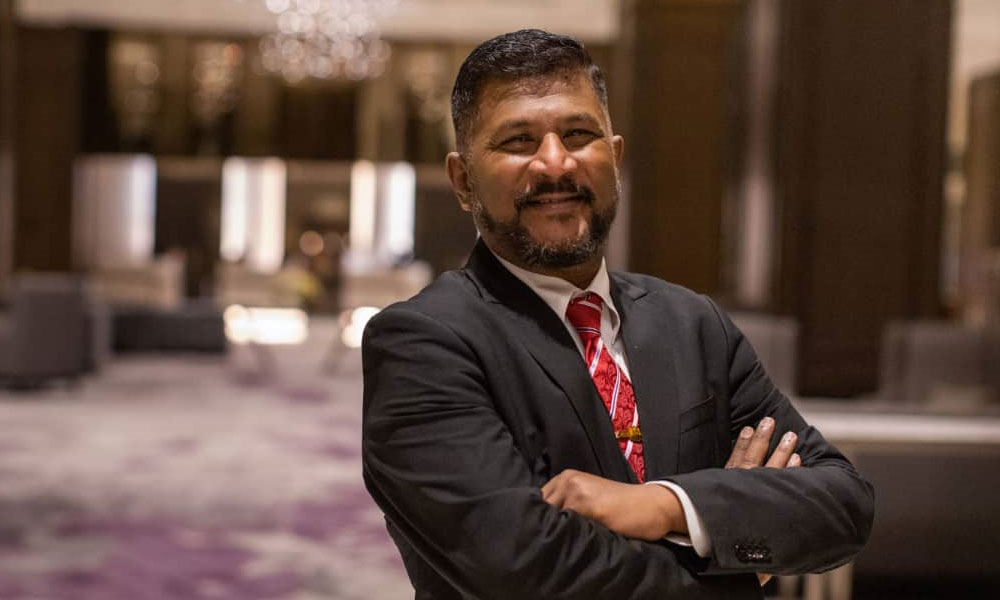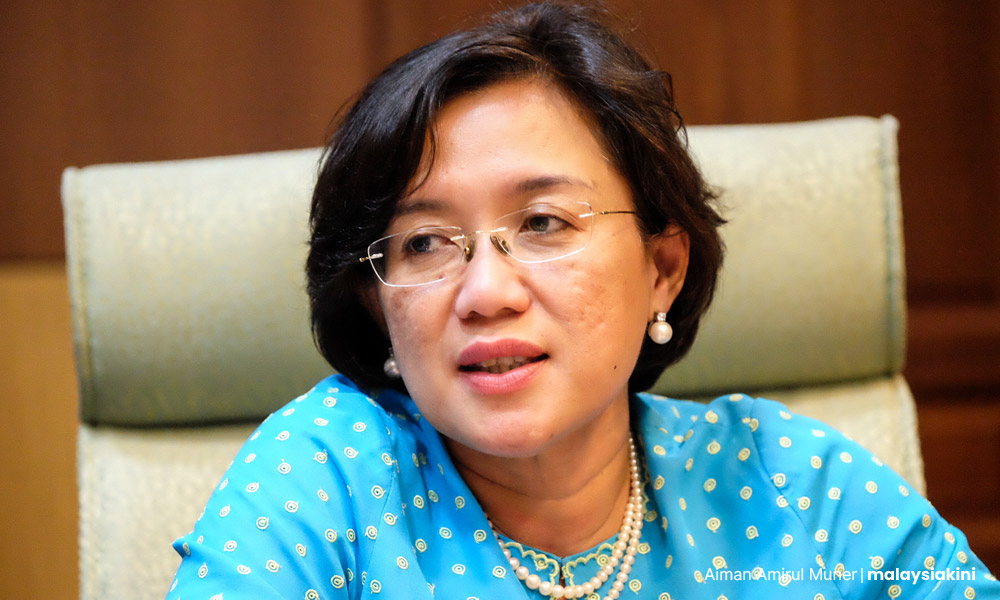
MMA wants HR minister to intervene in house officer 'exploitation'
The Malaysian Medical Association is writing to Human Resources Minister V Sivakumar seeking his intervention in what it views as "exploitation" of house officers in the Health Ministry.
The trainee doctors are now working up to seven hours a day beyond their stipulated work hours and are not receiving monetary compensation, said MMA president Dr Muruga Raj Rajathurai.
"I want the Public Services Department to sit with the Human Resources Minister to sort this out because house officers are being exploited.
"You're looking at every other sector and you say workers can only work a certain amount of hours, and if you work you should get overtime, if you work Sundays you have to get extras and all that.
"For house officers, they get an allowance of RM600 a month and allocated work time of 7am to 5pm but there are a lot of hours that are not accounted for," he said in an interview on the Astro Awani Current Affairs programme Consider This, which aired last night.

MMA president Dr Muruga Raj Rajathurai
Muruga said house officers are made to start work at 5am at times and not allowed to end their work day until all their assigned duties are completed, which may take up to 9pm that night.
In comparison, trainee doctors in countries like Ireland get paid for extra hours and work on weekends, motivating them to put in the extra work.
"Here we are not doing that. We are exploiting the house officers. It's a big word I am using, but this is what I'm going to write to the HR minister about," he said.
Unclear criteria for permanent posts
Muruga was speaking on issues contributing to the brain drain of health professionals in Malaysia.
He said chief among which in public healthcare is work conditions and unclear career pathways.
This includes non-transparency of criteria to secure permanent posts, for contract medical officers, or promotions for senior doctors.
Some 40 percent of contract doctors who sat for interviews seeking permanent posts were rejected, but it was not clear why their peers were selected instead, he said.
This has resulted in healthcare professionals moving overseas or leaving for the private sector, he said.
He said while better pay is a motivating factor, many do so reluctantly because they do not want to leave their families in Malaysia so improving workplace conditions can help stem brain drain.
Muruga said house officers are made to start work at 5am at times and not allowed to end their work day until all their assigned duties are completed, which may take up to 9pm that night.
In comparison, trainee doctors in countries like Ireland get paid for extra hours and work on weekends, motivating them to put in the extra work.
"Here we are not doing that. We are exploiting the house officers. It's a big word I am using, but this is what I'm going to write to the HR minister about," he said.
Unclear criteria for permanent posts
Muruga was speaking on issues contributing to the brain drain of health professionals in Malaysia.
He said chief among which in public healthcare is work conditions and unclear career pathways.
This includes non-transparency of criteria to secure permanent posts, for contract medical officers, or promotions for senior doctors.
Some 40 percent of contract doctors who sat for interviews seeking permanent posts were rejected, but it was not clear why their peers were selected instead, he said.
This has resulted in healthcare professionals moving overseas or leaving for the private sector, he said.
He said while better pay is a motivating factor, many do so reluctantly because they do not want to leave their families in Malaysia so improving workplace conditions can help stem brain drain.

Dr Adeeba Kamarulzaman
Earlier, Health director-general Dr Noor Hisham Abdullah, in response to a Twitter discussion over the matter, said even if the Health Ministry resolved all issues of workplace bullying and poor work conditions, many will still leave to get better pay abroad.
He was responding to tweets by Dr Adeeba Kamarulzaman, former Universiti Malaya medical faculty dean, who lamented that every year UM loses its brightest medical graduates to Singapore.
She stressed that it cost the government RM1 million per student to train, and Singapore is reaping the benefits.
Asked about Noor Hisham's response on Consider This, she said while it is true people will continue to leave for better pay abroad, worsening conditions mean workers are leaving public healthcare at a rate never seen before.
Adeeba said with specialists moving to private healthcare and mid-level or junior doctors heading abroad, there are serious implications for the sustainability of the public health system.
"Who is left to train the next generation of doctors, especially when mid-level and senior specialists leave for the private sector?
"What this will do in the long run is that it will affect the quality of training, not just for junior doctors but in the long run, specialists, who will service both the public and private sector. It has a knock-on effect."
She also proposed a compensation system where private hospitals that hire healthcare professionals from the public service should pay the government a certain sum, which could be used to train future specialists.
"Private hospitals who steal our doctors should compensate us and pay like (a sort of transfer fee akin to transfer of) footballers, to pay for the next person to be trained."
Earlier, Health director-general Dr Noor Hisham Abdullah, in response to a Twitter discussion over the matter, said even if the Health Ministry resolved all issues of workplace bullying and poor work conditions, many will still leave to get better pay abroad.
He was responding to tweets by Dr Adeeba Kamarulzaman, former Universiti Malaya medical faculty dean, who lamented that every year UM loses its brightest medical graduates to Singapore.
She stressed that it cost the government RM1 million per student to train, and Singapore is reaping the benefits.
Asked about Noor Hisham's response on Consider This, she said while it is true people will continue to leave for better pay abroad, worsening conditions mean workers are leaving public healthcare at a rate never seen before.
Adeeba said with specialists moving to private healthcare and mid-level or junior doctors heading abroad, there are serious implications for the sustainability of the public health system.
"Who is left to train the next generation of doctors, especially when mid-level and senior specialists leave for the private sector?
"What this will do in the long run is that it will affect the quality of training, not just for junior doctors but in the long run, specialists, who will service both the public and private sector. It has a knock-on effect."
She also proposed a compensation system where private hospitals that hire healthcare professionals from the public service should pay the government a certain sum, which could be used to train future specialists.
"Private hospitals who steal our doctors should compensate us and pay like (a sort of transfer fee akin to transfer of) footballers, to pay for the next person to be trained."
All the wall flowery talks just to hide that openly known ketuanan fart of giattunas!
ReplyDeleteThere r enough dedicated & self fulfilling doctors around to support the bolihland health care system. Yet many r been frustrated by been bypassed by those giattunas hp6 & kabel-ed yet hopeless elite offsprings to higher positions & better working conditions.
Truly, knock-on effect!